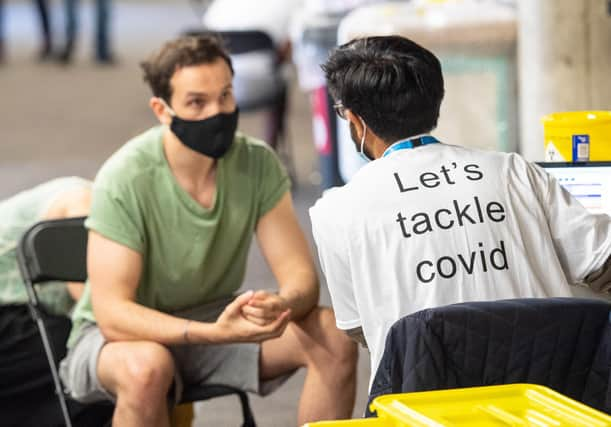Scotland, Europe’s Covid capital, needs its own public inquiry to find out how it got into this state – Brian Wilson


The case for a distinctly Scottish public inquiry – entirely independent of government – is now stronger than ever. We need to know the particular elements leading to this outcome so they can be avoided in future. If that offends the self-regard of any politicians, then so be it.
This approach has been backed by the Royal College of Nursing and the GMB union whose general secretary, Gary Smith, said: “Those decisions have nothing to do with Westminster, Cardiff or Belfast. They are owned by the Scottish Government alone and an independent public inquiry into its handling of this pandemic should be confirmed.” That is unanswerable.
Advertisement
Hide AdAdvertisement
Hide AdMeanwhile, it seems reasonable to conclude that greater restrictiveness does not guarantee better outcomes. All the good achieved through people’s willingness to follow the rules can quickly be undone, particularly where politics prevails over science – the Manchester/Leicester Square dichotomy is only the most obvious and recent example.
There is risk in everything but the balance of advantage currently lies in moving towards normal economic activity while relying on the vaccine and personal responsibility to mitigate outcomes. Most people seem to recognise that and the differentiations in detail and timing are secondary.
One inconvenient truth is that Scotland shares a small island and it is better for all governments to act accordingly. For example, it makes no sense to have different travel rules for the constituent parts of the UK. If cordial relations existed, the Scottish Government’s input into a shared conclusion would have been through negotiation. The science is the same everywhere.
Bookings of foreign holidays from England have soared following the announcement that quarantine for the double-vaccinated will not be required from amber-listed countries, including Spain and Greece. I would bet my bottom dollar a fair proportion of these have come from Scots who will cheerfully travel to and from Manchester or London to catch their flights to the sun.
It is not immediately clear what this achieves in public health terms but the absolute certainty is that it is another hammer blow to Scotland’s deserted airports and travel businesses, on which thousands of jobs depend. Where is the risk and reward analysis? Where is the scientific advice which supports delay in creating parity throughout the UK?
I have argued from an early stage that far more localism should have been allowed in the setting and implementation of both rules and remedies. That is the way comparable health crises were addressed in the past. If a bit of freedom had been given at local levels, many of the most glaring anomalies could have been avoided and normality sustained in at least some aspects of society.
For example, my heart went out to parents of young adults with learning difficulties who spoke on radio about the psychological damage and regression inflicted as a result of local authority day centres being closed for the past 15 months. Was this necessary or even defensible?
Our own elder son, who has Down’s Syndrome, has continued to attend an excellent third-sector facility throughout the pandemic, with all necessary safeguards in place. It could certainly be done. If more of these judgments had been left to local authorities, is it possible that at least some of the people affected would have continued with normality in their lives?
Advertisement
Hide AdAdvertisement
Hide AdI have no idea why Scotland was so far behind in introducing walk-in vaccine centres; perhaps another question for our public inquiry. However, it is interesting to see the approach now being taken in the United States where Joe Biden has adopted a door-to-door and workplace plan for getting people vaccinated.
This is based on findings – not in the least surprising – that trusted local leaders are more likely to get a response than messaging from on-high which most people, particularly the young, either turn off from or never tune into. Scotland may also have something to learn from that.
A message from the Editor:
Thank you for reading this article. We're more reliant on your support than ever as the shift in consumer habits brought about by coronavirus impacts our advertisers.
If you haven't already, please consider supporting our trusted, fact-checked journalism by taking out a digital subscription.
Comments
Want to join the conversation? Please or to comment on this article.
